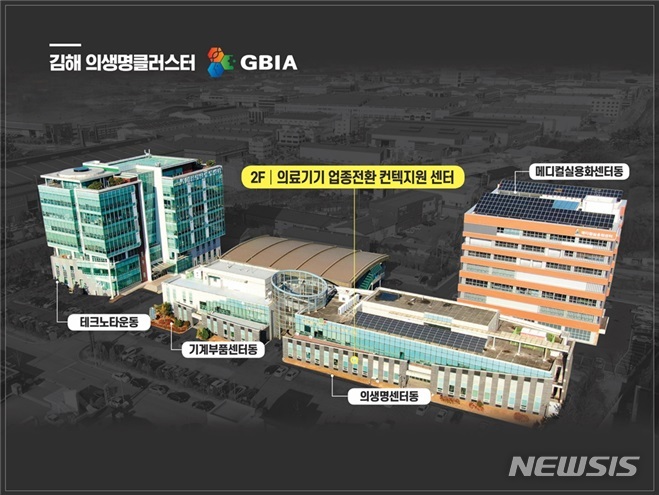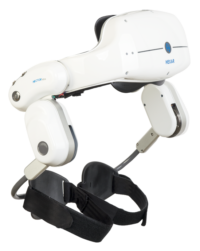The Gimhae Biomedical Industry Promotion Agency (“GBIPA”) is a control tower leading the biomedical and medical device industry, which is the future pipeline of Gimhae. It overcomes the limitations of nurturing the local industry by strengthening the connection with hospitals in the metropolitan area.
The GBIPA announced on the 23rd that it has been strengthening the competitiveness of the local industry through a startup incubator support project linking the local cluster and hospitals.
The project has been hosted by the Ministry of Health and Welfare (Korea Health Industry Development Institute, KHIDI) since 2019. Local biomedical companies are suffering from a lack of information on the direction of future medical industry trends and the selection of new treatment techniques and tools.
Accordingly, the KHIDI has been linked with the ‘Network of Promising Companies, Hospital Physicians, Investments, and Doctors’ Startup Research’, which will lead the future hospital ecosystem based in the Korea University Guro Hospital Open Lab (Director Song Hae-ryong).
It is promoted by the Ministry of Health and Welfare and contributes to the local biomedical cluster ecosystem by attracting companies from the metropolitan area. In addition, KHIDI is also operating the ‘2021 Metropolitan Area Hospitals-linked Vitalization Research Group’ to derive practical results. Based on this, it is preparing a foothold for nurturing medical device-specialized manufacturing companies through business change, etc., overcoming the limitations of local medical industry development.
In fact, medical startups in the Seoul Metropolitan Area, including MediIOT(digital musculoskeletal treatment and complex ultrasound treatment device, Seoul), New Live (Tinnitus treatment device, Seoul), Hexar Humancare (Rehabilitation robot, Gyeonggi), and Inception Lab in Yeongnam area (Electroceuticals, Daegu), etc., are clustered in Gimhae, concentrating on the integration of related industries. Currently, 79 units of the GBIPA are fully occupied.
In addition, the Medical Commercialization Center, which was newly opened this year, has completed the occupancy of 15 companies by establishing an environment that can provide one-stop support for biomedical companies from technology development to various licensing and product commercialization.
To this end, we are promoting the establishment of the Gimhae Public Lease-Type Knowledge Industry Center and are planning to house more than 50 biomedical-related companies on a 6,000 m² area within the Seogimhae Industrial Complex. In the future, we plan to integrate research companies and biomedical startups in Innopolis Innotown to maximize the effects of technology transfer, investment linkage, and job creation.
We expect to achieve business performance by establishing an R&D hub for electroceuticals, K-cell gene therapy, and digital therapy.
Hong Seong-ok, the head of KHIDI, said, “As Gimhae city has to prepare for the ‘Future Economy Era with Medical Data,’ we will strengthen our hospital-linked business in the metropolitan area and preemptively build a biomedical life metaverse platform so that we can play the role of a medical network hub in the southeast region. We will strengthen it further.”
Gyeongnam Daily Newspaper


